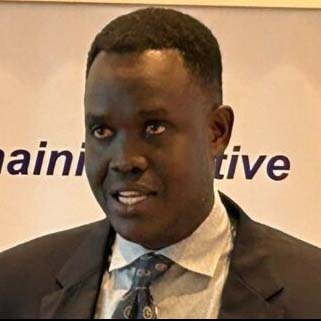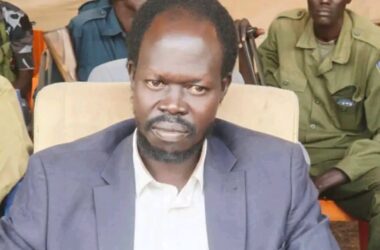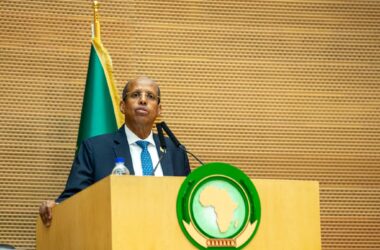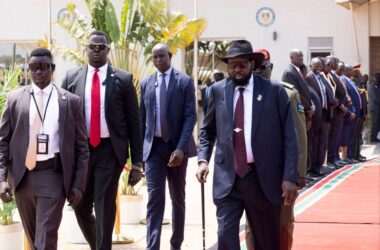By William Madouk
United People’s Alliance (UPA) has criticized the repeated pauses in the Tumaini peace talks, accusing the government of indifference to the suffering of the South Sudanese.
The talks were adjourned on Thursday at the request of the government delegation to prepare for the extended transitional period launching on February 22, 2025.
In a press statement, UPA Spokesperson and Secretary-General Lual Dau condemned the government’s actions, stating, “the government of South Sudan has decided to walk out once again from the Tumaini initiative.”
The UPA asserts that this obstruction demonstrates a lack of commitment to peace.
“The government delegation’s negative, obstructive, and anti-Tumaini behavior reflects that achieving peace is not their priority,” Dau noted.
“It also demonstrates their aloofness to the suffering of our people, and their inability to comprehend what is needed in order to rescue the country from imminent collapse and total disintegration,” he continued.
Dau reiterated the UPA’s commitment to achieving sustainable peace, the rule of law, and democracy, arguing that genuine commitment from the Juba administration would have yielded peace by now.
He urged the people of South Sudan to remain resilient and steadfast in their pursuit of peace.
Furthermore, Dau identified that there are two primary root causes of the conflict in South Sudan:
“First, it is a strategic failure of political leadership. Second, is a power struggle. There are other underlying contributing factors to the conflict in South Sudan, and these actually are the result of these two main things,” he said.
He said strategic failure of political leadership has almost 16 points, such as lack of a national vision and another was a dysfunctional system of governance, politicization and weaponization of ethnicities.
On Thursday, Dr. Martin Elia Lomuro, the government rapporteur said chair of the government delegation, Kuol Mayang Juuk requested a short break for Tumaini talks.
“The head of the delegation decided that we would adjourn and that we would return on Saturday or Sunday because we have a task to do in Juba where the transition extended transition starts on the 22nd, Feb,” he said.
“And we have to prepare ourselves to usher in that transition so that the institutions that are concerned with the implementation of that, of the R-ACSS are led, managed to prepare their programs for the next transition,” he added.
Mr. Lomuro explained that Juuk is also the chairperson of the National Transitional Committee (NTC), tasked with overseeing the implementation of the 2018 peace deal and his presence in Juba is needed.
Lomuro explained the parties to Tumaini’s talk had managed to identify 19 factors as the root causes of the conflicts, which were later on subdivided into seven headings.
He alleged that opposition responses and concerns are mostly addressed by R-ARCSS.
Mr. Lomuro, who also serves as minister of cabinet affairs revealed that they disagreed with UPA over the notion linking failure of political leadership as a root cause of the conflict.




